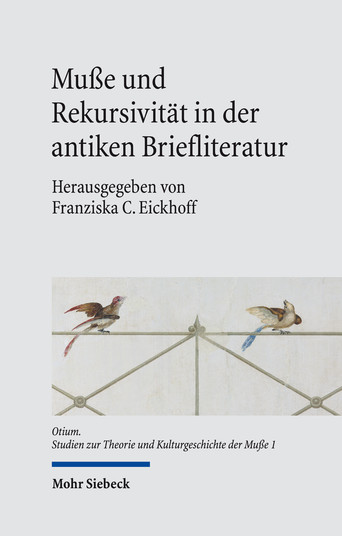[Leisure and Recursivity in Ancient Epistolography. With a View to Other Genres.]
eBook PDFISBN 978-3-16-154539-9Open Access: CC BY-NC-ND 4.0
Sponsored by: DFG – Sonderforschungsbereich 1015 Muße (Freiburg)There are many more descriptions of leisure moments to be found in ancient epistolography than in other genres. They often partly portray a certain way of life and mostly reflect the situation, depicted as a moment of calm and leisure, in which the letter is written or read. This volume's contributions take different approaches in order to investigate the mise en scène of this phenomenon and consist of semantical studies of the otium lexicography and researches in the functions of leisure. Articles on selected authors of ancient epistolography investigate, for example, Epicurus, Horatius and Seneca's philosophical letters, while Ovid's letters of exile, letters written by members of the Roman aristocratic elite Cicero and Pliny as well as Aelian's and Libanios' Greek epistolography of the Roman Empire are also featured. Additional essays focus on the function of leisure research in Catullus, the Augustean literature and humanist neo-Latin epistolography literary genres. The collection's introduction aims to shed light on the theoretical connection and structural similarities between leisure and epistolography.
Survey of contentsFranziska C. Eickhoff/Wolfgang Kofler/Bernhard Zimmermann: Muße, Rekursivität und antike Briefe. Eine kurze Einleitung










 Stumble It!
Stumble It!

No comments:
Post a Comment